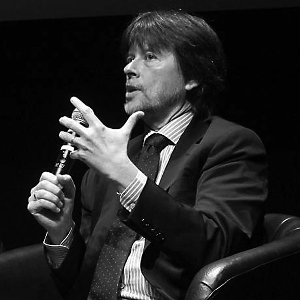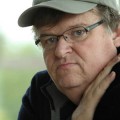Ken Burns is no stranger to storytelling. Burns has shared the rich history of America as a documentary filmmaker for over three decades, and it’s this work that landed him as the recipient of the 2013 “John Steinbeck Award: ‘In The Souls of the People.‘”
Following in the footsteps of past winners such as Sean Penn, Michael Moore, and Arthur Miller, Burns’ nomination comes as no surprise. San Jose State University’s Center for Steinbeck Studies notes that the annual Steinbeck Award is granted to those “whose work captures the spirit of Steinbeck’s empathy, commitment to democratic values, and belief in the dignity of people who by circumstance are pushed to the fringes.”
Before accepting the award in SJSU’s Morris Dailey Auditorium, Burns sat down with friend and KQED Public Radio host Michael Krasny. The two discussed Burns’ ever-growing body of work and his life as a filmmaker.
What makes Burns’ films so memorable is the experience. From his debut documentary Brooklyn Bridge in 1981, to his upcoming 2014 film The Roosevelts: An Intimate History, Burns has the ability to expertly guide his viewers through the annals of history.
“An investigation of history isn’t a look into the past, but one into the future,” He said. With that in mind, Burns hinted at a handful of other projects that he and his team are currently working on after The Roosevelts, including one on the Vietnam War.
For Burns, each new film is as much a way to teach his viewers as it is to learn something himself. “I’ve never made a film about something I know about,” he half-jokingly admitted.
When the laughter from the audience subsided, Burns’ comment quickly turned to a deep introspection that not only elaborated on the filmmaking process, but of basic human connection as well. Krasny asked him how he decides to take on a new story, Burns said by “saying yes to it, the same way you do a friend. This is us sharing the process of discovery.”
Some, however, felt left out of this process. A small crowd of protesters outside the auditorium claimed that Burns’ documentary mini-series The War failed to represent the 500,000 Latino/Mexican American soldiers who fought in WWII. Burns seemed to address their concerns by saying his films often engender criticism about what’s left out of the final product.
In this sense, Burns argued that his documentaries are a testament to just how dense and detailed these American histories are, but that as documentaries these stories still must conform to editing for programming and flow. The whole process is a collaboration of countless individuals and the process takes years before completion.
Aside from the peaceful and respectful protestors, the event sailed smoothly. Burns was eager to thank his team when Krasny asked about the process of making these films. Burns sees his documentaries as intimate, hand-made collaborations. They have shown him the importance of “belonging to something bigger than one’s self,” he said. As Burns puts it, making documentaries with his team is a form of emotional archaeology and complex storytelling.
After Burns accepted his award, the auditorium cleared out. As Krasny walked out amongst the fans, I asked him what he thought of the event. “I thought it was a memorable evening and Ken was, as always, impressive. The audience was very responsive with him.” said Krasny. “He really delivered, and it was nice to see him get the kind of recognition he deserves with the Steinbeck Award.”

 Preview: The Terracotta Prince
Preview: The Terracotta Prince  Michael Mina to Open New Restaurants at 49ers Stadium
Michael Mina to Open New Restaurants at 49ers Stadium 


